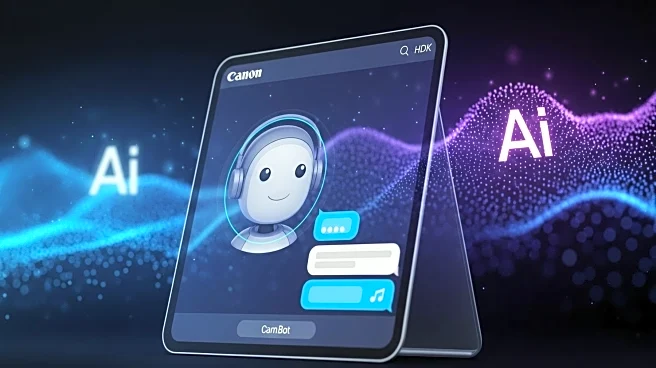What is the story about?
What's Happening?
A phenomenon termed 'AI psychosis' is emerging, where individuals experience delusions and paranoia after extensive interactions with AI chatbots. These delusions often involve beliefs that the AI is sentient or part of a conspiracy. Experts clarify that this is not a new mental disorder but a modern twist on existing patterns of delusional thinking. AI is seen as a trigger or amplifier for underlying mental health issues rather than the root cause. Documented cases are rare but can have severe consequences, including job loss, hospitalization, and even death. The term 'AI psychosis' is debated among psychiatrists, with some preferring 'AI delusional disorder' to better describe the condition.
Why It's Important?
The rise of AI-induced delusions highlights the intersection of technology and mental health, raising concerns about the impact of AI on vulnerable individuals. As AI becomes more integrated into daily life, understanding its psychological effects is crucial. This issue underscores the need for responsible AI design and usage, particularly in mental health contexts. It also calls for increased awareness and education about the potential risks of prolonged AI interaction, especially for those with predispositions to mental health disorders.
What's Next?
Mental health professionals are adapting to these cases by incorporating questions about AI usage into evaluations. Treatment for AI-induced delusions may involve traditional methods like medication and therapy, with added focus on media literacy and limiting AI use. The AI industry is beginning to respond, with companies implementing safeguards to prevent harmful interactions. There is ongoing debate about regulation and the balance between innovation and mental health safety. Further research is needed to understand the prevalence and triggers of AI-related delusions, which will inform guidelines and interventions.
Beyond the Headlines
The phenomenon of AI-induced delusions reflects broader societal anxieties about technology's role in shaping reality. It raises ethical questions about AI's design and the responsibility of tech companies to prevent harm. The issue also highlights the importance of destigmatizing mental health treatment and promoting healthy tech use. As AI continues to evolve, its impact on mental health will remain a critical area of study, influencing how society navigates the digital age.














